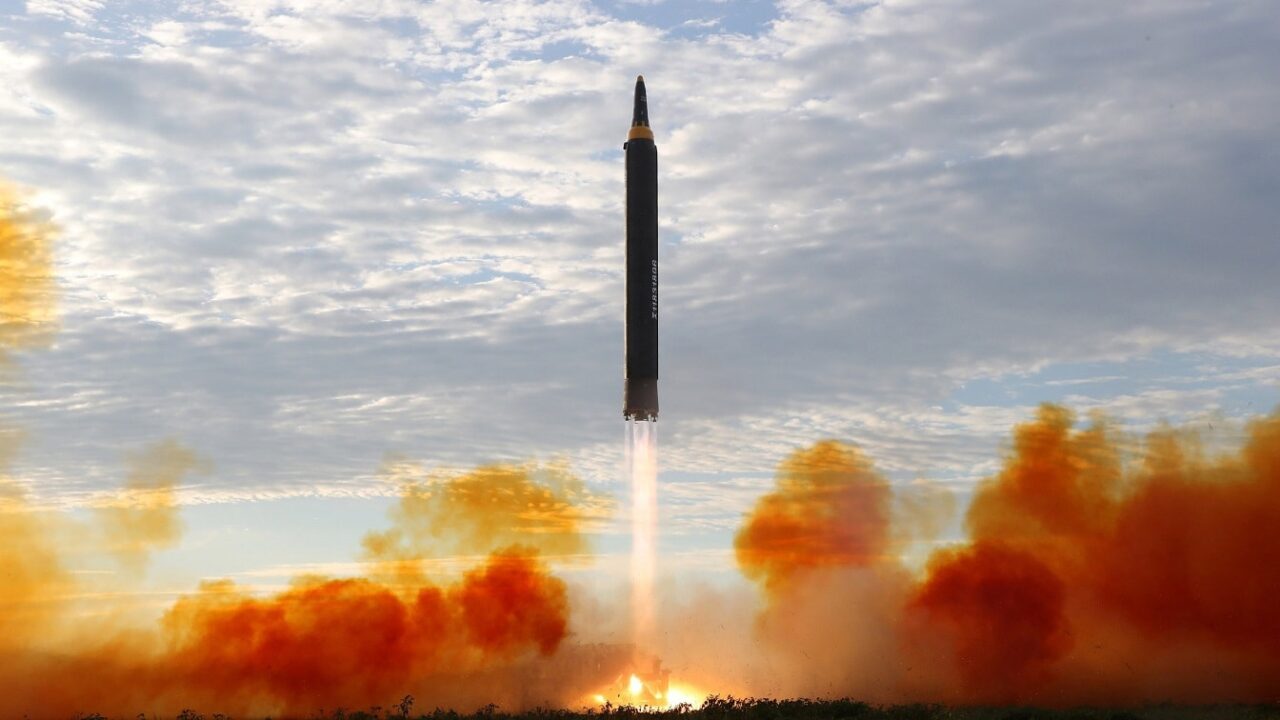Earlier this week, North Korea tested another intercontinental ballistic missile (ICBM). Many readers probably did not know this.
It was barely covered by the Western media, and even here in South Korea, it mostly brought a shrug.
The US, Japan, and South Korea condemned the test but did not say anything we had not heard many times before.
This is hardly their fault. There is little we can do to stop North Korean missile testing. If there were, we would have done it before.
In other words, we are becoming used to the most terrifying country in the world possessing nuclear missiles which can strike most of the planet.
This is a remarkable achievement – for North Korea. It represents the normalization of, at least, their missile program. North Korea now understands that it can test with near impunity. It has even launched missiles over Japan without facing a response. We are stuck.
‘Pakistan’ Model of Nuclear Acceptance: Hang Tough
For many years, North Korean testing has been met with stern denunciation – as well it should be.
Democracies have placed sanctions on it and taken their concerns to the United Nations, which has also sanctioned the North.
We have fought North Korean sanctions evasion and chased its illegal monies and transfers to prevent the illicit import of weapons materials.
We have installed missile defense in Japan and South Korea and warned that North Korean nuclear use would bring fierce retaliation.
Former US President Donald Trump even negotiated with Kim to bring some controls to the program.
But none of this worked.
It seems very apparent now that Kim does not intend to sign a meaningful arms control accord and otherwise limit his weapons production.
The outside world can rage and threaten, but barring the use of force, Kim seems likely to force upon us the acceptance of his nukes and missiles.
This is remarkable for a country otherwise so weak.
There is a ‘model’ for this. Pakistan developed nuclear weapons in the late 1990s, and global opinion was initially very hostile. Hyperbolic analysts warned about nuclear war in southeast Asia, and the US government sanctioned Pakistan. Pakistan said little in response. Instead, it just hung onto its weapons and waited. In time, analysts forecasting doom were wrong and exhausted themselves. Events in world politics moved on, and Pakistan’s weapons slowly slipped from the front pages. And after 9/11, the US lifted sanctions to solicit Pakistan’s help against terrorism.
Accommodation of North Korea is Harder: We Don’t Really Know What They Have
Pakistan did what North Korea is doing now: digging in and waiting out world opinion. This will be harder for Kim. North Korea is a much greater global pariah than Pakistan ever was. But Pakistan showed how grudging acceptance by the rest of the world can be won: just hang tough through the early storm of condemnation and criticism; be responsible with the nukes and missiles (do not sell or proliferate them); eventually the world moves on, if only out of sheer exhaustion, and everyone adapts. The North Korea version of the Pakistan track to acceptance is harder because of its political – i.e., orwellian – character, but also its opacity.
North Korea has had nuclear weapons since 2006 and has tested missiles since the 1990s. Its program is frightening. We have only a poor sense of how North Korea is governed. Below the autocracy of Kim Jong-Un himself, we have weak grasp of how other players – his sister, the generals, the State Affairs Commission, and so on – interact. We do not know what North Korea’s ‘red lines’ for nuclear use are. We do not know if local commanders have release authority. We do not the size of North Korea’s biggest nuclear warhead or how many it has.
This is more surprising than it seems. Some military secrecy is very valuable of course. But in nuclear affairs, revealing information can, in fact, be very stabilizing. The US and USSR learned this during the cold war. If each knew, roughly, what the other had, then each could be less paranoid.
If my opponents have one thousand warheads, not ten thousand, then I do not need to build ten thousand myself. North Korea has not learned this lesson. Indeed, it is likely never to learn the value of nuclear transparency, as the country’s internal culture is built on control and suspicion.
This poor transparency will make the world’s accommodation of North Korean missiles and nukes harder. Pakistan got de facto acceptance in just five years. North Korea will need much more. But given our poor response options to its programs, grudging acceptance is already happening.
Expert Biography: Dr. Robert E. Kelly (@Robert_E_Kelly; RoberEdwinKelly.com) is a professor of international relations in the Department of Political Science at Pusan and a 19FortyFive Contributing Editor.
From 19FortyFive
A Russian Submarine Accidently ‘Destroyed Itself’
Total Massacre’: Ukraine Footage Shows Russian Cruise Missile Shipment Attacked

